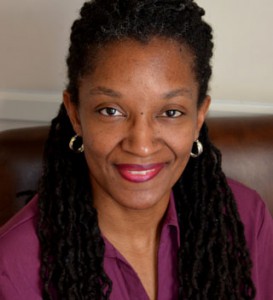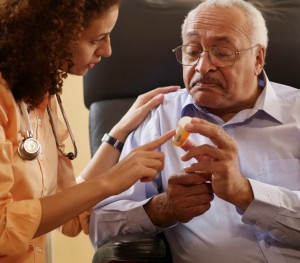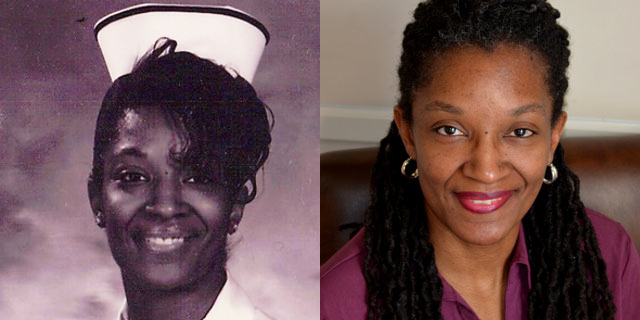“Health, which is a state of complete physical, mental, and social well-being, and not merely the absence of disease or infirmity, is a fundamental human right and that the attainment of the highest possible level of health is a most important world-wide social goal….”–World Health Organization
Choosing Nursing for Primary Care
 “I’m of the mind that your work and purpose in life will always find you, whether you want to be found or not. I didn’t choose nursing. I was a business major first, with every intention on going to law school.” But something changed for Angel Shannon. “I had a friend who worked in mental health/addiction nursing who loved it. At the same time a brilliant person I loved dearly fell victim to addiction…I knew then that a caring profession was what I wanted.”
“I’m of the mind that your work and purpose in life will always find you, whether you want to be found or not. I didn’t choose nursing. I was a business major first, with every intention on going to law school.” But something changed for Angel Shannon. “I had a friend who worked in mental health/addiction nursing who loved it. At the same time a brilliant person I loved dearly fell victim to addiction…I knew then that a caring profession was what I wanted.”
Angel is a Nurse Practitioner. Nurse Practitioners (NPs) are Registered Nurses (RNs) who also have Bachelors in Nursing (BSN) degrees with several years of graduate education beyond college. To add APRN to your name, you need to take a certification test and also be certified in a specialty. As of 2015, nurse practitioners will be required to have Doctorates in Nursing or PhDs. At this point, NPs can have completed masters or doctoral level degrees.
Are You a Doctor or Are You Still a Nurse?
In her blog, Angel describes the role of nurse practitioner as providing “…the equitable and efficient delivery of comprehensive health care with a focus on health education and disease prevention.” Even as a practicing nurse practitioner as well as faculty member at Penn State University, she hears this questions, “Are you a doctor or are you still a nurse?”
The question doesn’t faze her.
She is happy with her choice. As she states, “It’s the philosophy of my discipline that I’m most proud of. That philosophy, at its most basic level, is rooted in caring about the whole patient–mentally, physically spiritually.”
Her practice focuses on geriatric medicine. As Angel explains [you] “have to remember these folks come from an entirely different era. These are people who are used to hearing a physical voice on the other end of the line, who have no idea how to bypass voicemails.” And they are, at first, wary of seeing a nurse practitioner, instead of a physician.
“…we absolutely need to start ‘getting to know our patients’ beyond their ICD-9 codes.”

Angel has been helping some of Baltimore’s most vulnerable people. Conditions ranging from the triad of diabetes, hypertension and hypercholesterolemia to chronic obstructive pulmonary disease (COPD), gastro-esophageal reflux disease (GERD), anxiety and depression are common in her practice.
She believes in putting the whole patient at the heart of care. Focus on the whole patient, including their family and community means learning about their whole existence–the circumstances and “conditions in which people are born, grow, live, work and age” which “are shaped by the distribution of money, power and resources.” These “social determinants of health are responsible for health inequalities,” according to the World Health Organization (WHO). Angel tries to tackle health inequalities patient by patient. On her blog and during a chat on April 10, 2014, she describes one such patient.
“an elderly woman… who was widowed, worked all her life and raised great children but, facing economical challenges, just couldn’t make ends meet. Here she is dividing her insulin doses in half, taking half of her blood pressure medications, nowhere near a decent grocery store. How do you start measuring “quality indicators” and outcomes without addressing the real day-to day-realities? Diabetes control, blood pressure control…All of it is directly dependent upon access to good nutrition, [being able to] afford medications etc…It takes two seconds to ask a patient to bring ALL of their medications to the next visit to actually see what they couldn’t afford.”
Coordinating care is vital to geriatric patients. “…they get lost. Geriatric patients also require more attention. An aging body often has declining renal function so you have to be very careful with medications. I ask for them to bring every pill, cream, lotion and potion to appointments even if it means packing a suitcase.”
As a primary care provider and perhaps the only contact that can know what is happening in a patient’s life, Angel writes,
“ Some say it isn’t the primary care provider’s job to get involved with social issues, such as transportation, food, finances and physical access to needed services and educational supports. That some individuals live in what we now know as food deserts—communities without access to nutritious, health foods—is a personal problem, they say, one beyond our control. Certainly, there are social workers who are better suited—and have the time—to address these issues, and there’s no argument that our payors will not reimburse us for helping individuals find transportation or locate family members to help. But to ignore the social determinants of health…is to contribute directly to the health inequalities our care is supposed to eliminate.”
What Do You Think?
What do you think? Is it the role of the primary care provider, physician or nurse practitioner, to get involved with “social issues” like food, transportation, finance and paying for medications?






This is a very balanced post about advanced practice nursing. I started as a nursing assistant 8 years ago with aspirations to be a primary care physician. Now I own a medical-fitness company. This field is truly a calling. I salute people like Angel who serve the aging population.
Thank you for your comment. Nurse practitioners and other healthcare professionals are leaders who can make real differences in the lives of those who are in need. But we all must be a part of the answer to reducing poverty and the disparities in health that result. We, at Medivizor, are so grateful to learn and share the stories of people who are making a difference.
not only the medical profession – but EVERYONE should get involved in those issues.
You are right. Everyone needs to understand and be involved. One of the hopes of the people at Medivizor is that providing health information for free to all who are interested will empower and make a difference. This is a free service and is available for anyone who signs up.